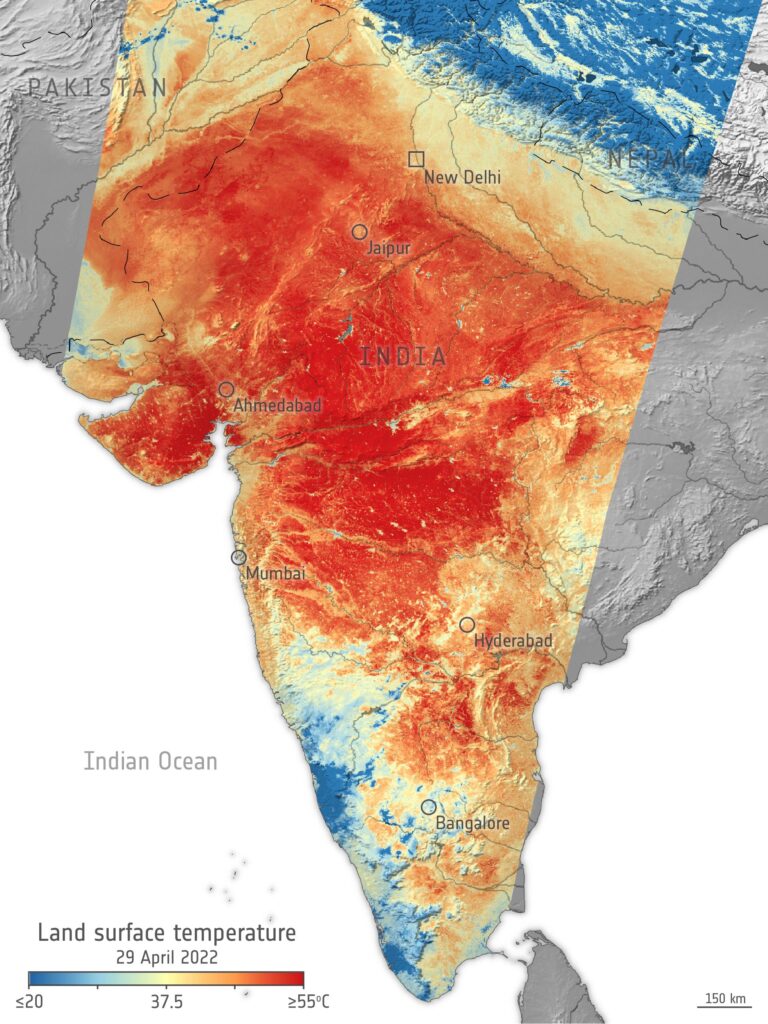- Advertisement -
As the cricketing world turns its attention to the upcoming World Cup in India, New Zealand all-rounder Michael Halliday has identified adapting to the country’s intense heat as the most significant challenge facing his team. With blistering temperatures expected to test players’ endurance and fitness, Halliday emphasized that acclimatization will be crucial for the Kiwis’ performance on the subcontinent. This candid insight highlights the physical demands that the tournament will place on athletes, underscoring the importance of preparation beyond just skill and strategy.
Adapting to Intense Indian Heat Poses Major Challenge for Kiwi All-Rounder Halliday
As New Zealand prepares for the upcoming World Cup, Kiwi all-rounder Halliday faces one of his toughest adjustments yet: coping with the relentless Indian heat. The soaring temperatures and humidity during matches in India present a grueling physical challenge, pushing players’ endurance and recovery to their limits. Halliday emphasized that beyond technique and skill, mastering the climate will be critical to maintaining peak performance throughout the tournament.
To tackle these extreme conditions, the team has implemented several strategies focusing on hydration, nutrition, and conditioning. Halliday revealed that their preparatory regime includes:
- Night training sessions to simulate match conditions
- Customized fluid intake plans tailored to individual sweat rates
- Enhanced recovery protocols involving ice baths and electrolyte therapies
| Condition | Challenge | Team Response |
|---|---|---|
| Humidity | Increased fatigue and dehydration | Hydration plans & electrolyte balance |
| High Temperature | Heat stress during long innings | Night practice sessions & cooling vests |
| Recovery | Slower muscle repair | Ice baths & tailored nutrition |
Strategies for Effective Hydration and Recovery Amidst World Cup Heatwave
Managing fluid levels effectively during intense heat is crucial to maintaining peak performance on the field. Experts recommend athletes increase their water intake well before training or matches, combining it with electrolyte-rich beverages to replenish essential minerals lost in sweat. Incorporating cooling techniques such as ice vests, shaded rest areas, and mist fans during breaks can significantly help stabilize body temperature and prevent dehydration-related fatigue. Additionally, players are urged to monitor their urine color and frequency as simple, practical indicators of hydration status.
Key recovery practices include:
- Consuming balanced meals with high water content, like fruits and vegetables.
- Utilizing cold-water immersion or contrast baths post-game to reduce muscle soreness.
- Prioritizing sleep in cool environments to enhance cellular repair.
- Scheduling sessions during cooler parts of the day when possible.
| Hydration Tip | Recommended Action |
|---|---|
| Pre-Game | Drink 500 ml water 2 hours before kickoff |
| During Match | Consume 150-250 ml electrolyte drink every 15-20 minutes |
| Post-Game | Hydrate with water and include potassium-rich snacks |
Preparing Physically and Mentally to Combat Extreme Weather Conditions in India
The intense heat and humidity typical of Indian summers demand rigorous physical conditioning from athletes aiming to perform at their peak. Endurance training, hydration strategies, and heat acclimatization are crucial components that players increasingly prioritize ahead of major tournaments. For cricketers like Kiwi all-rounder Michael Halliday, adapting to these harsh conditions means subjecting the body to controlled heat exposure during practice sessions, improving sweat efficiency and cardiovascular resilience. Nutrition plans also shift toward electrolyte-rich diets to maintain optimal hydration levels and prevent cramps, which can sideline even the fittest competitors.
Mental preparedness is equally vital, as coping with extreme weather involves managing stress, maintaining focus, and staying psychologically resilient under pressure. Techniques such as mindfulness meditation, visualization, and structured rest periods help athletes remain composed and sharp despite fatigue and discomfort. Support staff play a pivotal role in monitoring mental well-being and advising on recovery protocols. Below is a quick overview of essential preparation strategies for success in extreme weather:
- Physical Conditioning: Heat acclimatization, electrolyte balance, stamina building
- Mental Training: Stress management, focus enhancement, mental rest cycles
- Recovery Techniques: Cold therapy, hydration protocols, balanced nutrition
| Preparation Aspect | Key Actions | Benefits |
|---|---|---|
| Physical Training | Endurance drills, Heat simulation sessions | Improved stamina, Heat tolerance |
| Mental Conditioning | Mindfulness, Visualization | Enhanced focus, Reduced anxiety |
| Nutrition & Hydration | Electrolyte-rich diet, Timely fluid intake | Optimal hydration, Muscle function |
The Way Forward
As the World Cup approaches, adapting to India’s intense heat will undoubtedly be one of the greatest challenges for players like Halliday and his teammates. Navigating extreme temperatures not only tests physical endurance but also strategic planning and team preparation. How the visiting sides manage this crucial factor could significantly influence their performance and the tournament’s overall dynamics. Ultimately, the ability to acclimatize to India’s climate may prove just as important as skill on the field in the quest for World Cup glory.
- Advertisement -


